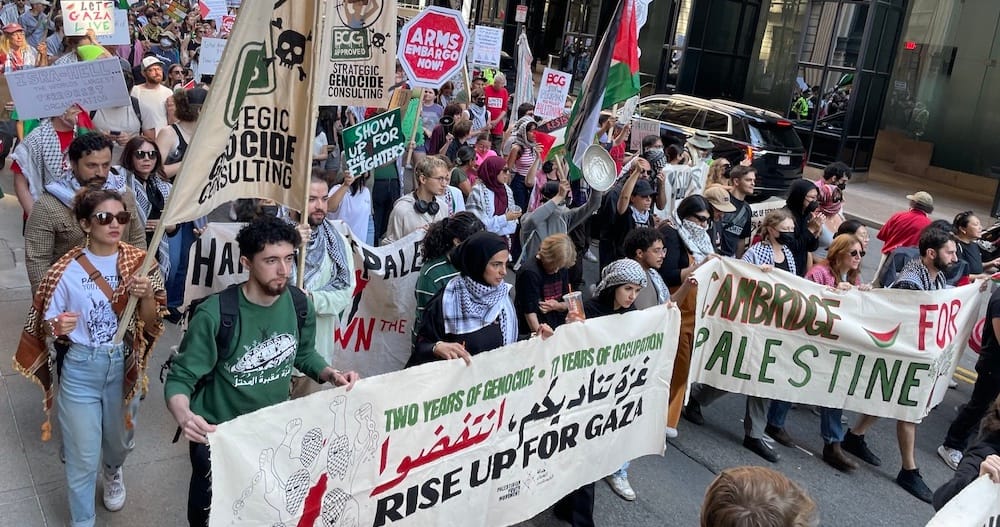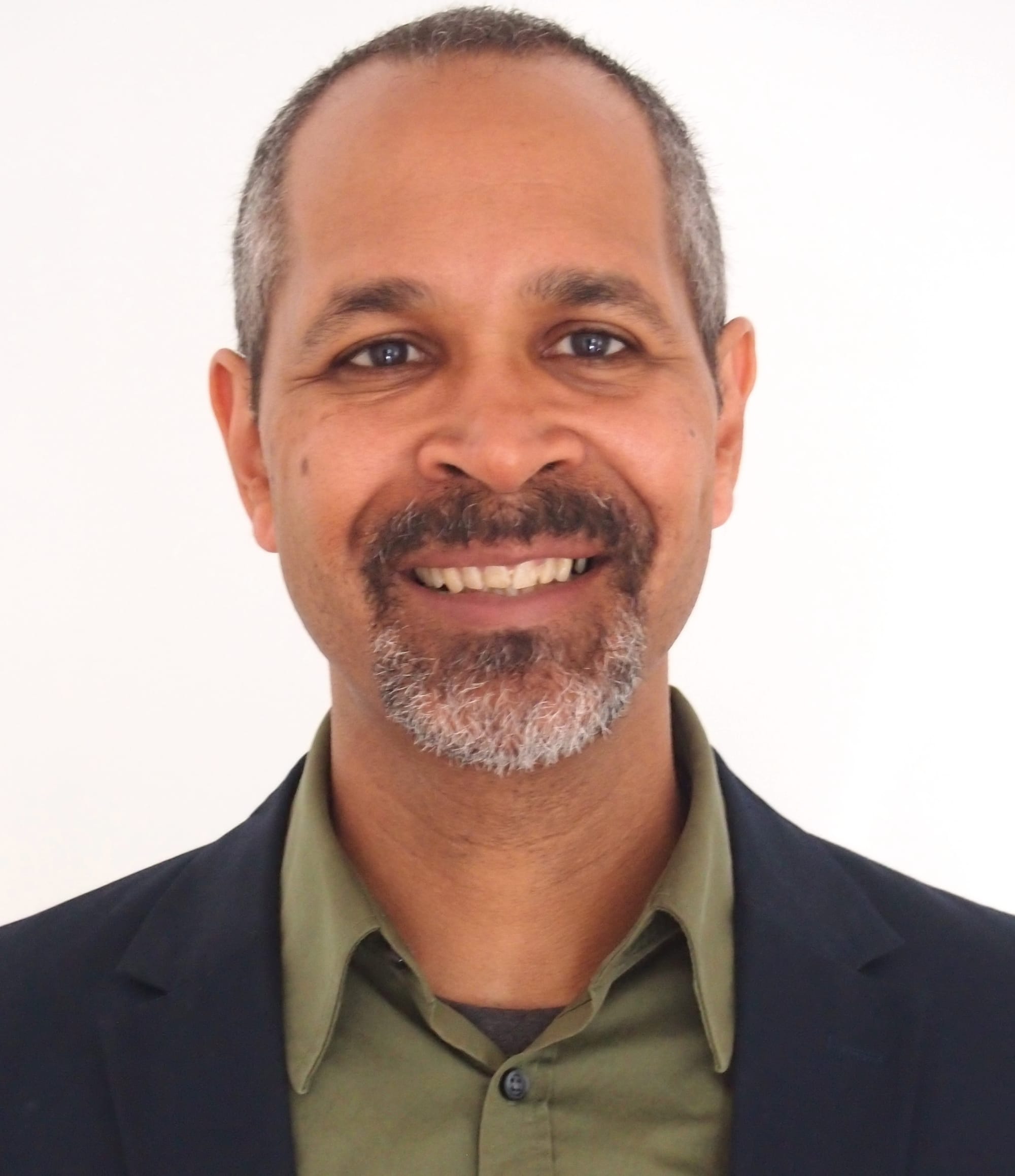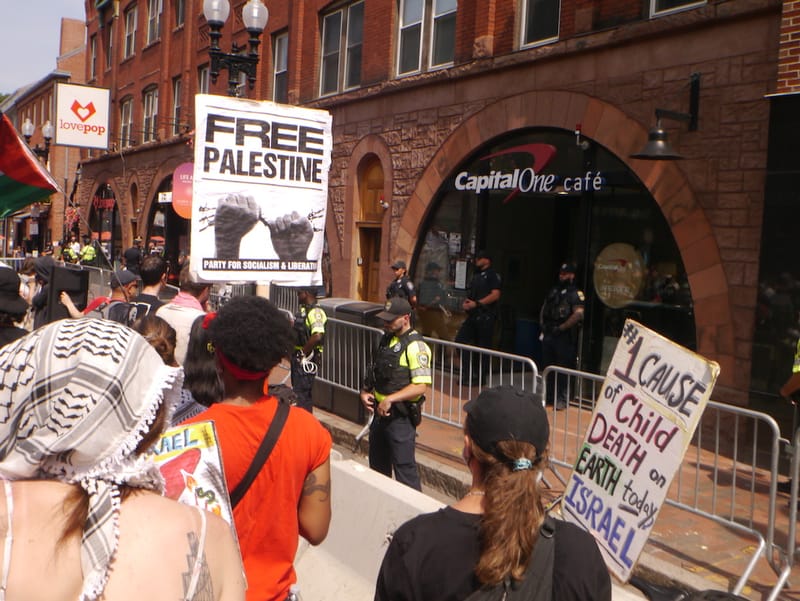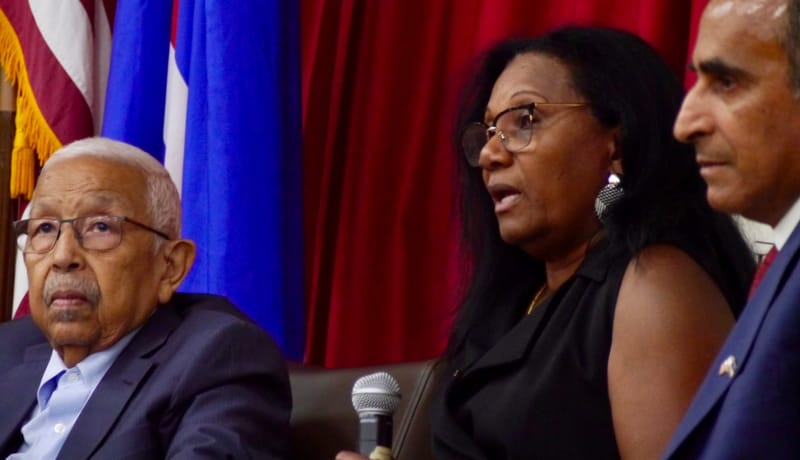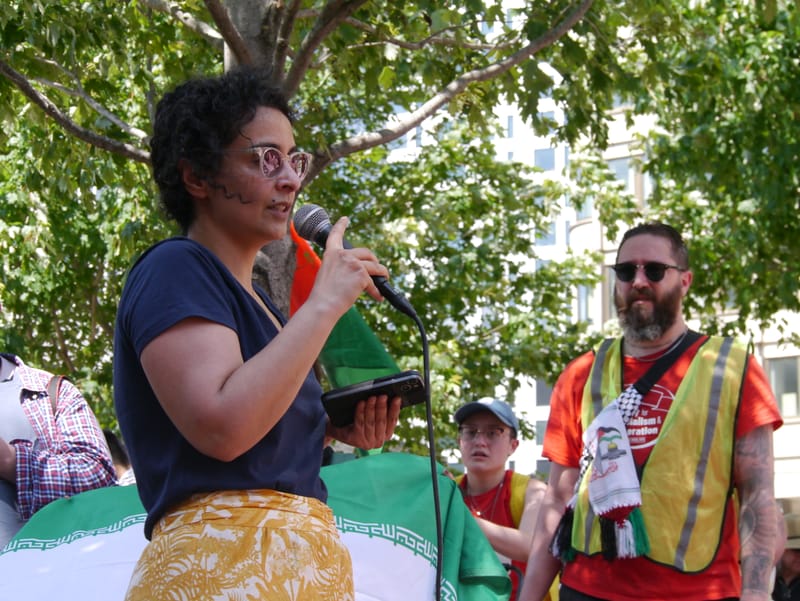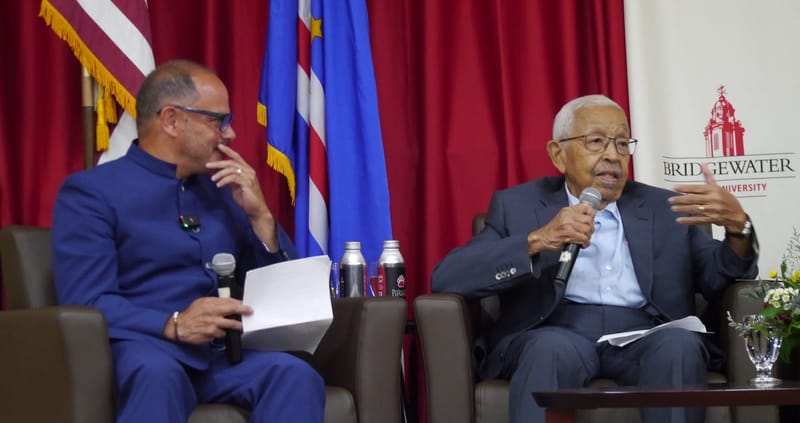Pro-Palestinian activists see shift in attitudes after two years of war
After two years of Israel’s siege of Gaza, during which people around the world have witnessed video recordings of Palestinians gunned down, bombed and burned alive by Israeli soldiers, activists say the needle has moved on popular opinion of Israel’s occupation.
For years, pro-Palestinian activists used the term “progressive except for Palestine” to describe leftists who supported Israel’s occupation and settlements in Gaza and the West Bank.
But after two years of Israel’s siege of Gaza, during which people around the world have witnessed video recordings of Palestinians gunned down, bombed and burned alive by Israeli soldiers, activists say the needle has moved on popular opinion of Israel’s occupation.
“I think in 2025 we can retire that term,” activist Joe Tache said of “progressive except for Palestine.”
“This mass movement has transformed popular opinion in the United States and around the world,” he said. “To be progressive, you have to stand against genocide.”
Tache and more than 1,000 others took to the streets Sunday in a demonstration that marked two years since the Oct. 7, 2023 Hamas-led incursion into southern Israel and the beginning of Israel’s bombardment and siege of Gaza.
Since then, health authorities in Gaza have recorded 66,000 deaths from Israeli bombardment, sniper attacks, firebombs and other anti-personnel munitions. Tens of thousands of more Gazans are unaccounted for, having been buried under the rubble of the 463,000 homes the United Nations says Israelis have bombed in the territory of 2.1 million people.
While Israel has refused to let news media enter Gaza since the start of its siege and has killed more than 200 journalists working in Gaza, the video footage and images that have made it out of the territory have depicted scenes of horror — children targeted by Israeli snipers, U.S.-supplied 2,000 pound bombs dropped on tent encampments and malnutrition and starvation that has spread as Israel has restricted all but a trickle of aid from reaching Gazans.
Since Israeli’s military last week intercepted a fleet of boats bringing aid to Gaza and abducted the more than 500 anti-war activists who took part in the flotilla in international waters, major demonstrations broke out across Europe and the Middle East, including a general strike that shut down Italy Oct. 3.
“A majority of people in the world have shifted to support an end to the genocide and for Palestinian self-determination,” said Fawaz Abusharkh, a member of Boston Coalition for Palestine. “Israel and the United States are becoming more and more isolated every day.”
In the United States, where public opinion has traditionally favored Israel, 59% of Americans now favor the recognition of a Palestinian state, with 78% of Democrats in favor. In August, U.S. Rep. Ro Khanna, a California Democrat, circulated a letter in Congress calling on the Trump administration to recognize a Palestinian state and received 47 signatures from his colleagues in the U.S. House. In response, U.S. Rep. Jake Auchincloss, a conservative-leaning Massachusetts Democrat, circulated a letter affirming Israel’s “right to self-defense” — casting the ongoing bombardment of Gaza as a defensive action — and received just 30 signatures from House members.
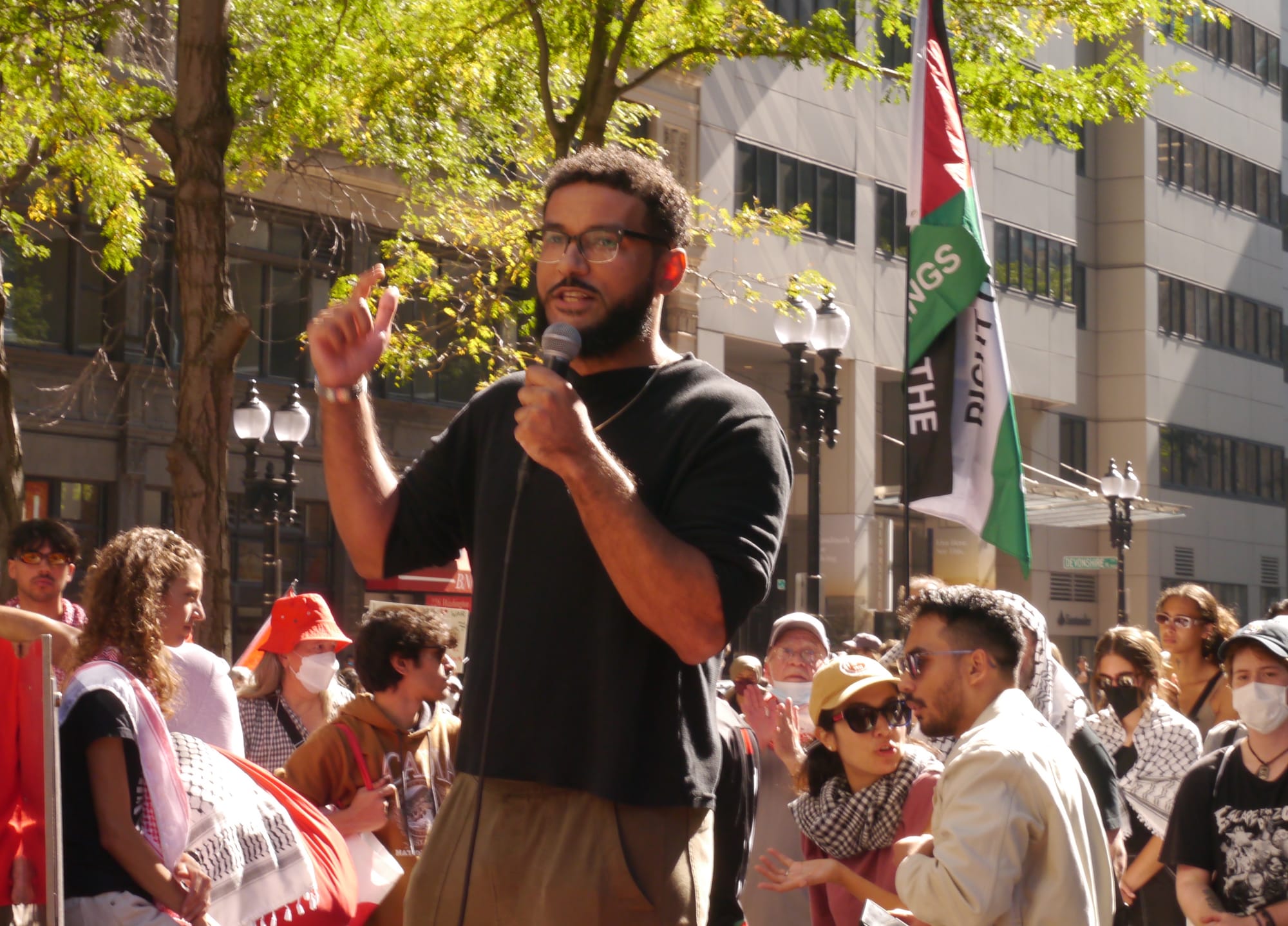
“It’s a remarkable development that the pro-Palestinian rights letter gathered more than 50% more signatures than the AIPAC-backed one,” wrote Jewish Voice for Peace co-director Mitchell Plitnick on the anti-Zionist news website Mondoweiss.
In Boston Sunday, activists said the change in Americans’ attitudes has been noticeable.
“Just the amount of people who are out today is a significant indication that the tide is turning against Israel’s apartheid state,” said labor organizer Steve Kirshbaum. “It’s remarkable.”
Kirshbaum and others note that it hasn’t been easy for demonstrators in the past two years. College students have faced discipline for demonstrating on campus, Mayor Michelle Wu ordered police to arrest Emerson College students who set up tents in a public alleyway and Boston Public School students were disciplined for leaving school to demonstrate, despite a lack of sanctions against similar demonstrations for climate action in previous years.
“The level of fascism and general attacks of freedom are going up everywhere,” Abusharkh said. “Popular support for Palestine is increasing, but colleges are caving in to the fascism.”
But Marilyn Frankenstein, a retired UMass Boston professor who is active in the Mass Teachers Association, cites small victories for the movement to boycott companies supporting Israel’s military. Israeli weapons manufacturer Elbit systems closed its Central Square office in Cambridge last year after a series of demonstrations there. Earlier this year, MIT severed its ties with Elbit Systems.
As demonstrators gathered at the intersection of Washington and Court streets downtown with Palestinian flags, banners and signs denouncing Israel’s ongoing aggression in Gaza, tourists on duck boats passing by shouted “free Palestine.”
“That’s kind of new,” Frankenstein said.
Abusharkh says he’s hopeful that the activism of the last two years will lead to change.
“Right will always win,” he said. “No matter how dark the road seems, no matter what happens, no matter how many people are doing wrong, there will always be more people doing good.”


